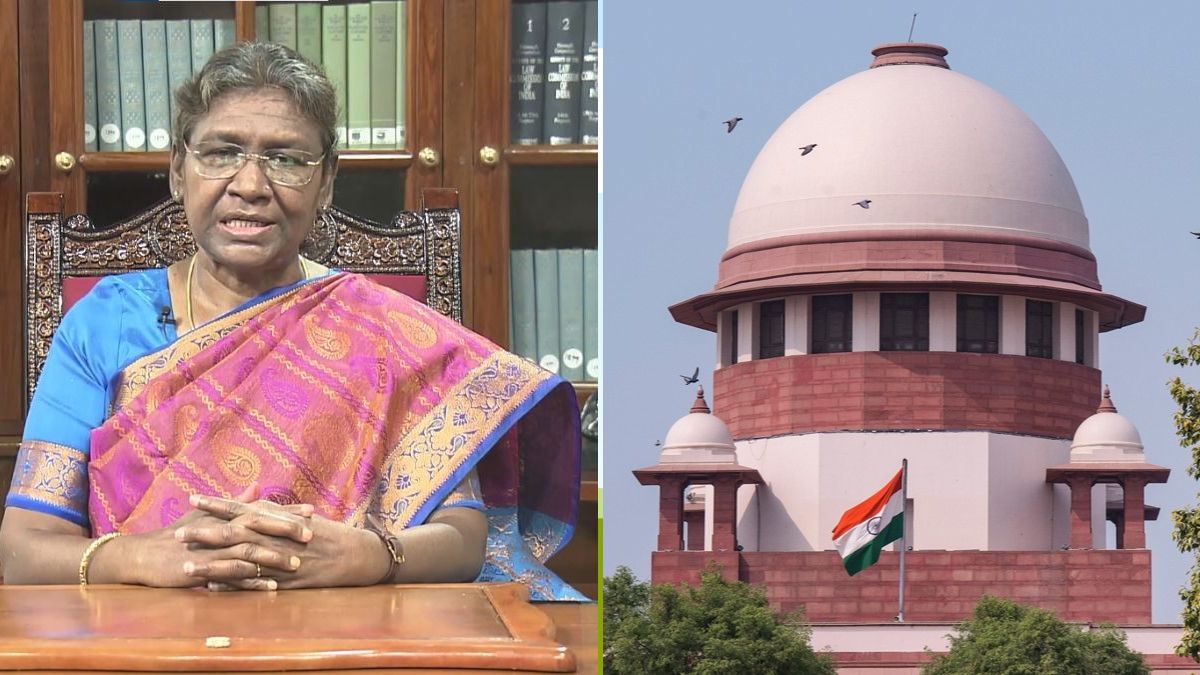Centre backs Governors as guardians, not post offices, ahead of Presidential Reference hearing on August 19

The stage is set for a constitutional showdown on August 19, when the Supreme Court takes up the Presidential Reference on Governors’ powers over state bills.
The Union government, led by Solicitor General Tushar Mehta, has said that assent, withholding, and reservation of bills are high plenary and non-justiciable functions, beyond the reach of judicial timelines or intervention.
Filing the written submissions, the Centre stated:
ALSO READ | Supreme Court issues notice to Centre and States on President Droupadi Murmu reference on timelines for bill assent
“Far from being post offices of state cabinets, Governors are cast by the Centre as guardians of the constitutional scheme entrusted with discretion to scrutinise state laws for national interest and federal balance. Any move by the Court to impose deadlines or introduce the doctrine of deemed assent, would erode separation of powers and elevate judicial supremacy over political accountability."
The Centre’s response came after the President of India had invoked Article 143 and asked the Supreme Court to clarify the scope of gubernatorial and presidential powers in assenting to, withholding, or reserving state bills.
What brought on the Presidential Reference?
The reference comes after months of political turbulence across states. In Punjab, Tamil Nadu, Kerala and Telangana, governments have accused Governors of sitting on key legislation. In some cases, bills were returned or withheld without explanation, paralysing governance.
According to the Centre, judicially imposed timelines or a doctrine of deemed assent would be dangerous innovations.
Why is the Centre opposing judicial timelines?
“The Constitution did not intend for Governors to be reduced to rubber stamps,” the submissions noted, warning that granting courts the power to compel assent would upset the separation of powers and tilt the system towards judicial supremacy.
The Centre also stated that delays or errors in gubernatorial functioning must be resolved politically through Parliament, legislatures or elections not through the judiciary.
The state of Goa, through its submissions, echoed similar concerns and argued that while the Court could nudge constitutional functionaries to act, it could not usurp their role.
“To declare a bill 'deemed to have been assented' would amount to the judiciary assuming a legislative function that the Constitution exclusively entrusts to Governors."
Goa suggested a more measured course of action, and said:
ALSO READ | 14 questions: President Droupadi Murmu seeks SC opinion on Bill assent deadlines under Article 143
“The Court may issue a declaration coupled with a request that Governors act expeditiously, as it did in State of Punjab vs. Governor of Punjab (2024). In that case, the Court stopped short of compelling assent but reminded the Governor that he must act as soon as possible.”
Goa’s submissions stress that even under the widest reading of Article 142, the Court could not cross the line into constitution-making.
Arguments by Goa and Puducherry
The Union Territory of Puducherry filed an affidavit backing the Centre’s position. As a territory directly administered by the President under Article 239, Puducherry argued that the President’s role in assenting to bills was inseparable from national oversight.
It supported the view that the absence of timelines in Articles 200 and 201 reflected a conscious constitutional choice, and that judicial interference would disturb the delicate federal arrangement.
The present reference crystallises decades of friction into a single set of questions before the Court.
Governors in several opposition-ruled states have come under criticism for allegedly stalling legislation. Tamil Nadu’s Governor returned the anti-NEET bill twice before forwarding it to the President. In Kerala, bills on university appointments and cooperative societies faced long delays. In Punjab, the Governor withheld assent to multiple bills, triggering a direct confrontation with the elected government.
The President’s reference asks the Court to clarify whether Governors act independently, whether their decisions are justiciable, and whether the judiciary can impose timelines where the Constitution is silent.
Impact on Centre-State relations
When the hearings begin on August 19, a Constitution bench will likely weigh precedent carefully. Earlier rulings like the Shamsher Singh (1974), Nabam Rebia (2016), and Punjab Governor (2024) cases have touched upon gubernatorial discretion, often stressing that Governors must ordinarily act on cabinet advice, but may exercise judgement in certain circumstances.
ALSO READ | Tamil Nadu governor vs state row: ‘President must decide on bills within 3 months', rules SC
The Court now has to decide whether withholding assent indefinitely violates the spirit of democracy or whether such inaction is itself a constitutional prerogative immune from judicial scrutiny.
For the judiciary, the challenge is delicate: either way, the verdict will set the tone for Centre-State relations for decades. If Governors are reaffirmed as discretionary guardians, the office will remain a powerful check on state legislation. If their role is curtailed, they may become ceremonial figures bound tightly to the will of state cabinets.
India